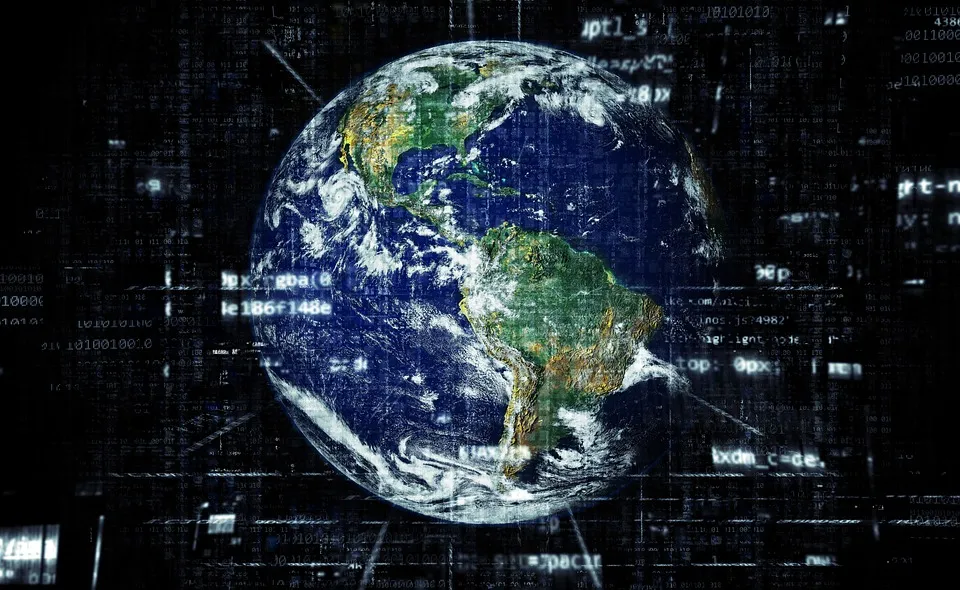
The world is in the throes of the Great Resignation. Workers are quitting en masse, seeking better prospects elsewhere, triggering a labour shortage across the board. Hidden in this trend is the Great Termination: vaccine mandates, official or otherwise.
In Singapore there is no formal mandate. However, unvaccinated workers are barred from returning to the office from 15 January. Partially vaccinated workers have until the 31st to get fully vaccinated. The Ministry of Manpower says termination is a 'last resort'. I've seen too many stories where it is the first resort, and many more stories where employers have either placed unvaccinated employees on no-pay leave in preparation for termination, or else reshuffled remote workers to frontline positions that require vaccination.
Everywhere else in the world, mandates are creeping into everyday life. Lockdowns for the unvaccinated in Australia, workplace vaccine mandates in America, mandatory vaccinations in Europe.
The impact of the Great Resignation is already being felt. Shortage of workers, leading to increased workload and stress across the board. Employers raising salaries to attract new workers, and then passing on the costs to the customers, causing prices and inflation to rise. Loss of institutional knowledge and expertise with the departure of experienced staff. Re-evaluation of work and study norms.
Unlike previous labour crunches, the impact of the Great Resignation will be exacerbated by the Great Termination. Vaccine workplace mandates have created an underclass of workers who will never be hired for frontline work unless and until the mandates are lifted. Regardless of how attractive employer incentives may be, unless those incentives come with the option to work from home, these workers will not apply for vacancies, nor will employers hire them. Blue collar workers will be the hardest hit.
As described previously, the impact of the Great Termination will be felt in three waves in Singapore: the third week of January, the first week of February, then in the coming three to six months. I am not an economist and I cannot predict how this will affect the economy. However, if you're swept up in the Great Termination and you need to know your next move, this post is for you.
I've been a freelancer and an entrepreneur ever since I entered the workforce. I've never held a conventional job for long. Out of necessity, I've had to start my own business, learn about personal finances (oftentimes the hard way), and slog through reams of work as an underpaid and replaceable contractor.
When I first started out, the economy was relatively stable. The economic crises of the late 2000s and 2010s hadn't significantly affected my life. I had room to make mistakes—and I'd made plenty of them. Now, though, between the double whammy of the Great Resignation and the Great Termination, there will be tens of thousands of people in Singapore alone that will be forced into my shoes. Expand this worldwide and we could be talking hundreds of thousands, or even millions of workers who will suddenly be out of a job.
If this is you, you won't have years to learn from your mistakes. Especially if you have dependents and/or huge bills.
If you're going to be part of the three waves of the Great Termination, you only have weeks, even days, to get ready. I've been hammering home the necessity of starting multiple income sources and building a parallel economy on this blog. If you haven't started yet, you are running out of time.
In this post, we're going to cover how to survive the coming crisis—and how to thrive.

Employee or Entrepreneur?
Who are you? An employee or an entrepreneur? You must decide for yourself who and what you are.
Both paths are valid. But both require different strategies. I'm going to describe general principles first, then show how to adapt them depending on your life path.
If you are an entrepreneur, focus on creating value for the world. This means identifying a problem you can solve, then presenting the solution. The more niche, complicated, wide-ranging and expensive that problem is, the greater the value you create through your solution.
If you are an employee, create value for those creating value. Find someone whose mission and core values you resonate with, then support him in that mission. Provide skills and services that he does not have and is looking for. Show how your skills support the business.
If you have to shift from one life path to another, you need to make a mindset shift as well.
As an entrepreneur-turned-employee, you have to recognize that you're working on someone else's time, by someone else's rules. Be prepared to adjust your lifestyle and attitude accordingly. It's best to find someone you can click with, to make the process easier. You shouldn't place yourself in a position that could lead to resentment building up between you and your employer. That would merely cause detriment to both parties in the long term.
To make the jump from employee to entrepreneur, recognize that you, and you alone, are responsible for the business and your well-being. Finances, operations, products, marketing, everything about your business is your responsibility. You may hire people to help you, but if you're the owner, you make the final call. You have to be prepared for the stress and the responsibility that comes with that—and that's in addition to taking care of your health, your personal finances, and your dependents.
There is far more to being a successful employee or entrepreneur than this blog post can go into. You must embrace continuous education. You must learn valuable skills and expertise that your target needs, be he an employer or a customer. You need to learn how to manage your finances, health and relationships. You need to develop the mindset of antifragility, growth and abundance.
But that's long term. In the near term, to ride out the Great Termination, you need to hustle.

Crisis Mode
If you're staring down the prospects of termination and you don't have options, you're in crisis mode. It's tempting to think only in the short term, to live day by day and juggle one emergency at a time.
Do not do this.
You cannot just think of the short-term. Right now, you may need to take on a dead-end low-pay job to feed your family. But the longer you stay in such a job, the poorer your career prospects become. You are showing that you do not, or cannot, grow. That means it is harder to break out of this rut. In a time when expenses are likely to rise, you cannot afford to stay in the rut.
The pandemic will end some day. The impact of the Great Resignation will linger. Even after the end of the pandemic, it will still take time to recover from this economic turmoil. It could be months, or even years. The crisis is not short term, so you cannot think only in the short term.
Start with your vision. Where do you want to be? What is your ideal state? How much money do you want to make? How many hours a day are you prepared to work? Where do friends and family fit into the picture? What do you want to do with your life?
If you're scrambling for work, the most important thing you need to do is set your financial targets. Calculate your bills and expenses. Tabulate every single one of them, no matter how insignificant. You need total clarity and awareness of your situation. This is the absolute minimum amount you need to make. Then add 30% to that number.
10% is for long-term savings. 10% is for education. 10% is for investments.
Even if you're in emergency mode, you still need savings. If unexpected emergencies crop up, and your income isn't enough, the balance will have to come out of your long-term savings. Most Americans don't have enough money to cover a sudden $1000 expense; 25% of Americans don't even have any savings. Without savings, your life is incredibly fragile. You will not be able to survive a sudden shock. You must build a cushion.
Education lifts you out of the rut. The more valuable skills you gain, the more value you can create. The more value you can create, the more money you can make. This includes asking for a pay raise or a promotion, or raising your prices to match the value you can offer. Remember: the longer you stay in a dead-end job, the longer you will stay there. Education is how you break this.
Investments are your hedge against inflation. Inflation is already on the rise, and the Great Resignation is going to make things worse. If you're swept up in the Great Termination, this will hit you the hardest. By investing in high-performing assets, you can beat the inflation rate and create long-term wealth.
I cannot offer you financial advice. I can say that if all this is new to you, look up the JARS system of money management. Then seek out advice from qualified experts.
If you are unvaccinated, no one is coming to save you. You must save yourself.
You cannot just hope for the best. You cannot tell yourself you'll deal with things if they come. You cannot pretend that you are not on the chopping block. If you'll be affected by the Great Termination, you need a plan. You need to adapt to the coming disruption and build a better life.
You need the 3S framework.

3S
Stability, Sustainability, Scalability.
In turbulent times, you need to stabilize yourself. Then you need to adapt to the new environment. Once adapted, you can transition to a long-term career realignment to achieve the best life possible. Use this matrix to plan your actions.
Stability
Living in Singapore, stability would be part of your daily life. Stable job, stable income, stable growth. Do not hope for this now. Instead, think of a more fundamental kind of stability:
Stability from disruption.
The greatest threat to your income right now is the Covid measures. As we have seen over the previous weeks and months, policies will come down from above without warning, often with little to no lead time to adjust. What was set in stone yesterday could be reversed tomorrow. This is confusing and disruptive. To create income stability, you need an income stream that is immune to ever-changing government policies.
Any stable income stream in this period should have the following properties:
- Home-based. Either work from home, or visit a customer's home to perform key services.
- Local. Your workplace should be within reasonable traveling distance. This means a home-based office, or anywhere you can reach on foot, by bicycle, or a personally-owned motor vehicle if you have one. Public transport is not an option: assume that the government will bar the unvaccinated from public transport.
- **Networked. **There should be a critical mass of customers and influencers, and a platform to connect you to everyone else. Customers are your income sources. Influencers are people who drive attention to your industry, and therefore your services. The platform is how you reach people, and how people can recommend you to others.
If your work requires you to make home visits, you need to be prepared to spin off into working from home, or to develop an income stream that allows you to make money from home. You must be prepared to adapt to a total lockdown, like we saw in 2020.
Let's go with a typically Singaporean example: tutor. You offer tuition services in your fields of expertise. With the current Covid measures, you may be limited to small class sizes, or making house visits to your pupils. In the event of a lockdown, however, you need to prepare a curriculum that can be delivered over the Internet, such as Zoom or video lessons. You need a way for customers to find you, so you need a website, or at least a social media presence. You'll also want to network with fellow tutors and possibly supportive parents. In Singapore, that means going on Facebook and Telegram.
Do not limit yourself to just one income stream. Have at least two, preferably more. That way, if one income stream is disrupted, you have others to fall back on.
I am a freelancer. I am a writer. I also invest in cryptocurrency, and blog on Hive. I have other skills that allow me to pivot swiftly to other job options. In the same vein, you need to create options for yourself. However, developing an income stream takes time and energy.
The more time and energy you invest into developing an income stream, the more it will pay off. But you may not have time. If you're in crisis mode, focus on developing just one stable income stream. Splitting your focus now will only ensure you will not be able to make any money. Once you can cover the bills, you can think about branching off into other directions.
To figure out which income stream to focus on, develop your talent stack. Identify your strengths and combine them with your experience to create a unique combination of skills. This unique combination is the value you can provide to the world, and is the source of your income.
Suppose you're a programmer. These days, a programmer is a dime a dozen. You need to show your value through your talent stack. If you have expertise in multiple programming languages, this means you are highly adaptable and can take on a wide role of programming tasks. If you have 8 years of experience in the biomedical industry and are certified in Scrum and Agile, you have the ability to work on highly complex problems for a technical industry, allowing you to command a higher salary.
Different talent stacks will lead to different career paths. A wide stack gives you flexibility, but you may have to start from the bottom every time you switch. A deep stack grants expertise and the possibility of higher income, but you are more susceptible to system disruptions.
In the long term, you want the best of both worlds. You want to have deep expertise to command high income, and adequacy in a spread of other skills to let you adapt to changing times. In a crisis, however, you must accept what you can get—then, once you are stable, adjust your stack accordingly.
If you are an employee, if you haven't already, craft your CV and cover letter now. When preparing these documents, highlight your income stack. Show the value you are prepared to create for an employer. Then seek out an employer offering a position that allows remote work. The value of the network is in finding that ideal employer. If you're in Singapore, you can find job postings specifically for the unvaccinated here.
If you are an entrepreneur, think about what problems you can solve for the world. Think about the people who have these problems, and understand their needs and expectations. Present a product or service that can meet those needs. Your networks help you gather the intelligence you need to produce your solution, and to market it to others.
T. Harv Ecker shares this secret to success: ready, fire, aim. Once you know where you're going and what you need to do, execute. You can adjust your operations later.
Planning is essential, but you don't need a perfect plan. Do not be obsessed with every minor detail. Once you have an idea of what you need to do, act immediately. As you act, you will naturally gather more information and feedback. This allows you to adjust your plans so you can reach your target.
Let's say you want to create an online business that allows you to achieve financial freedom, but you're not sure what to do. Your talent stack includes strong language skills, an eye for detail, and excellent writing ability. You decide to start an online business offering copywriting and editing services. As you grow your client base, you may discover that the majority of them prefer copywriting. So you focus your efforts on marketing your copywriting services to maximise your income potential. As you gather testimonials, establish your credentials and build your portfolio, you can raise your prices to reflect the true value you offer. You can also branch out into coaching services. Combine these income streams with smart investments, and one day you'll find that you're financially free.
This does not take place overnight. This is an iterative process, with constant refinement along the way. You don't need to be perfect. You just need to know your goal, how you're going to get there, and how to avoid pitfalls and distractions that take you away from the goal. After that, execute—and adapt.
Sustainability
We don't know how long the pandemic will last. We don't know how long the Great Resignation will last. We do know that the consequences of both, and the Great Termination, will last. Your income streams must sustain you indefinitely.
A temporary job is just that: temporary. It may tide you through an emergency, but once the job ends, your income stream ends. Once your finances are stable, you must go looking for a sustainable income stream.
These temp jobs may not have a set end date either. For instance, consider a Covid test administrator. His job is dead simple: log in the Covid test results of everyone who reports to the workplace, then submit the results to the relevant authorities. But this job cannot last. Once the pandemic is over—more precisely, when testing requirements are lifted—the job will disappear. There is no declared end date for it, but it will come.
The same logic applies to a dead-end job. You may be forced to accept such a position to pay the bills, but this job cannot last. Without prospects for promotion or salary increments, you cannot stay in this job. As inflation rises and bills climb, you will lose purchasing power over time—and lose the ability to pivot to another job. You may have had to dive into the hole to meet your short term needs, but you need to climb out or you will be sucked in.
If you are in this position, then every day when you wake up, look at yourself in the mirror. Tell yourself that this job is temporary. You will find a better job. You will climb out of this rut. You will survive. You will create a better life. Every day, you must take actions to climb out of this rut. This means looking for new jobs, learning new skills, networking with people. Do whatever it takes to get out of the hole. No one will save you until you save yourself.
If you're a freelancer or a small business owner with a volatile income stream, you must pay special attention to sustainability. Your income may fluctuate, but your bills will not. If anything, plan for your bills to increase over time.
You may make two months' worth of income in one month. But if you earn nothing in the next month, then your actual income levels out. Worse yet, if you don't earn any money in the third money, you're losing money.
The key to avoid this is to determine your baseline. It is the minimum amount of revenue you need to cover expenses every month. Never allow your income to fall below this baseline. Plan your operations and income stream so that you will always hit this baseline. That way, any volatility can only go upwards.
Regular clients are critical. They are how you create your baseline. If you favour a high-ticket low-volume strategy, then you need at least two or three high-paying clients. If one client goes away, you will still have income. Conversely, if your approach is low-ticket high-volume, then your baseline will be the minimum number of sales needed to sustain your income. Your priority is to figure out how to retain your customers—then grow your customer base.
After going through this process, if you discover that you cannot hit your baseline, you need to go back to the previous step. Identify another income stream that can supplement or replace your existing income stream, then build it. Do not hope that volatility will save you. You cannot predict the future. You do not know when another income opportunity will come in. You must remove uncertainty as much as possible.
The same principle of eliminating uncertainty applies across the board. Prioritize securing a stable and sustainable income to see you through the crisis. Any volatility you introduce should only be to your benefit.
If you are an employee, seek to create further value for your employer. As far as possible, make yourself indispensable. Offer to take on new projects. Train your juniors. Assume greater responsibility. Learn new skills to meet an unmet need in the company. By continuing to offer value, you can continue staying in your job. And in the event that you lose your job, you can quickly find someone else who will appreciate your abilities.
If you are an entrepreneur, you need to ensure the continued survival of your business. Monitor market trends, figure out what will be hot in the future, then adapt as needed. You cannot afford to be static. Be prepared to pivot on a dime and adjust your business accordingly. This also includes learning new skills to keep up with these trends.
Scalability
Your income stream is secure. You are confident that it will sustain you through the pandemic, the Great Resignation and beyond. What's next?
Scale up your finances.
As an employee, this is straightforward. Either ask for a raise, or angle for a promotion. The trick is to position yourself to justify this. From an employer's perspective, your salary is an investment. He is investing his money in you so you can create value for him. You want to convince him to invest more money in you by showing that you can create even more value for him—or someone else, if they make you a better offer. The sustainability phase positions you for this. All that is left is to execute.
As an entrepreneur, this is much trickier. This depends on your temperament. As a rule of thumb, the more customers you serve, the more money you make. But there's only so much you can do before you need to bring in others to help out. More than just a financial cost, this requires time, energy, and the ability to manage people and projects. The more you expand, the more you need to invest time and energy into people management.
Dave Packard noted that a company is more likely to die of indigestion than starvation. Instead of going bankrupt from a lack of customers, a company is more likely to take on too many opportunities, grow too fast and too much, and collapse. Scaling a business requires a bedrock of sustainability. There is no use scaling up if your business falls apart in the end.
Some entrepreneurs simply cannot or will not scale. They may be geniuses at their art or craft, but they have terrible people skills. The most they can do is hire someone to take care of the non-essential tasks so they can focus on what they do best. They cannot scale far, but that's okay. Knowing your limits and keeping within them ensures the survival of the business. Overreaching beyond your capacity leads to failure. You can grow your limits—or more precisely, your capacity to expand—through investing in skills, people and technology, but it is better to be conservative and maintain the business than to be overly-aggressive and risk losing everything.
Survival is everything. Without survival, everyone who depends on you will go down with the company.
There is only so much a human can do. There are only so many hours in the day. You need to scale your processes beyond human limits.
One such method is investment. Investments require two elements: stability and volatility. Volatility is how you make money. Stability is how you lock in your profits.
Investment in cryptocurrency is a surefire way to introduce volatility to your investment portfolio. Stories of tokens going 2X, 3X, 10X, 100X and more are abound. The catch is, the greater the potential upside, the greater the downside as well. There's also the risk of scams and regulatory crackdowns. If you wish to dive into the wild world of crypto, do your own research—and do not invest more than you can afford to lose.
In the crypto world, stablecoins are how you secure profits. You convert your crypto assets to assets pegged to the US dollar or some other store of value. Then, when you see an opportunity to invest, you can quickly buy back into a valuable asset.
Other investment markets will have different asset classes and strategies. Once again, I am not a financial advisor. But as a rule of thumb, the key to successful investment is to dance between volatility and stability, to know when to move from one phase to the other. Or, in other words, to know when to buy, hold and sell.
Another way to make passive income is through automation. You create a valuable product, automate the sales process, and invite people to purchase it. By eliminating the human element from the workflow, you minimize time, energy and financial costs, allowing you to exceed human limits.
Let's say you are in possession of a set of specialized skills and knowledge. You decide to monetize it by creating an online course. The hard work goes into creating the course material. Once the course is published on a suitable platform, that's most of the work complete. All that's left is advertising the course and running promotions. If the platform has a search engine and/or algorithms that aid discoverability, all the better.
Scaling up is a long-term play. It is based on a foundation of stable and sustainable income. If you're scrambling to make ends meet, you won't have the resources necessary to make complex scaling plays. The best you can do under such circumstances is to invest in no-brainer assets, and in yourself.

The Beginning
Everything I've described up to this point are general principles. They are not everything you need to survive the coming days. They are merely the foundation of what you need.
From this base, expand your search for knowledge. Look more deeply into the terms discussed here. Identify your weaknesses and patch them. Brainstorm ideas. Seek out experts, connections, and networking groups.
You are your greatest asset. You need to invest in yourself. You cannot hope for others to save you. People will only help you when you show them that you are worth helping. You need to become worthy.
Prioritize your health. Covid has revealed the ongoing health crisis around the world. Nutritional deficiencies, obesity, chronic illnesses, sedentary lifestyle, lack of sunlight, all these are known modern illnesses. Covid brought them together in a perfect storm. The people most affected by Covid tend to be the elderly and the severely unhealthy. Do everything in your power to fix your health.
Build your networks. The people who care the most about you are the ones closest to you. They are far more likely to help you than some nameless, faceless bureaucrat. In a world marked by increasing social division and atomization, building a tribe is critical to survival and success. Be of service to others, and allow them to be of service to you. Through the power of human connections, we can lift up everyone.
Don't fixate on work. Income is important, especially if you're caught up in the Great Termination. But it's not the be-all and end-all. Never forget why you do what you are doing. Take care of your health so that you can continue to take care of others, and continue to grow your income.
With Omicron, we see the beginning of the end of the pandemic. It is also the beginning of a different world. A world with different ways of working, different ways of connecting, different ways of living. All of us, here in this moment, have the power to shape this better world. Through tapping on networks and technology, we can leverage our talents to create the best lives possible for ourselves—and in doing so, create better lives for everyone. In this time of crisis, a once-in-a-lifetime opportunity is coming to redefine and realign what it means to make a living.
Are you ready?

Li Ming is protector and warrior, employee and entrepreneur, walking the Way in a jianghu corrupted by corporations and governments. Check out his story here!